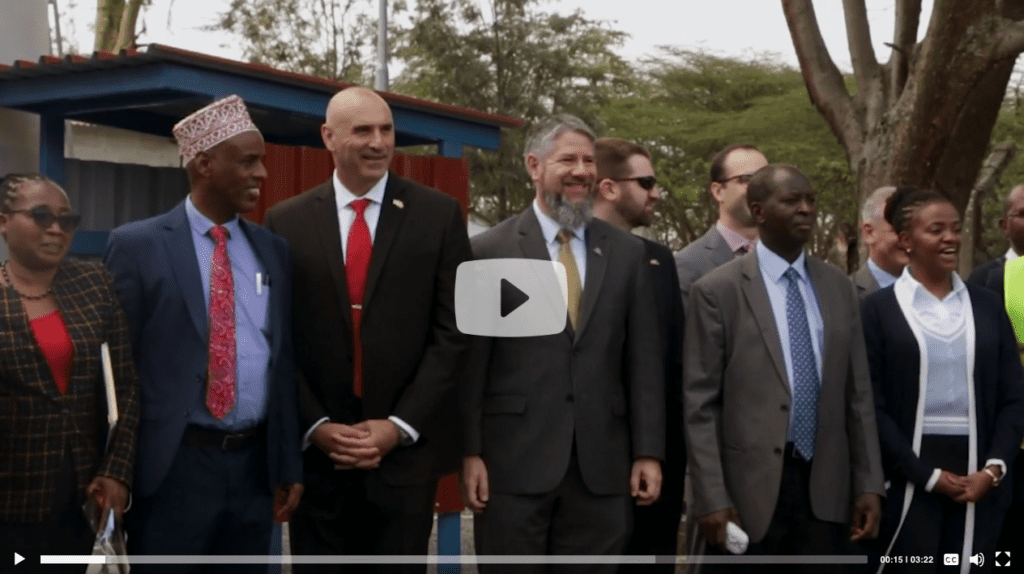BioSAFE Engineering and Kenya’s Veterinary Vaccine Production Institute (KEVEVAPI) recently completed the commissioning of a new effluent treatment system in Nairobi, the institute’s first major renovation since 1952.
The culmination of a multi-month collaboration between BioSAFE, KEVEVAPI and the United States Defense Threat Reduction Agency (DTRA), the critical facility enhancement features the installation of 6 Effluent Decontamination Systems from BioSAFE, including the first alkaline hydrolysis units in Africa.
BioSAFE Chief Executive Officer Phillip Mervis shares: “The KEVEVAPI project requirements did pose some unique difficulties, including space constraints and limited room to work. The system also needed to be designed to be scalable in order to accommodate both current demand and expected future growth. However, by leveraging past experiences and our unique technology base, we were able to overcome these difficulties.”

Dr. Robert Pope, Director of Cooperative Threat Reduction at DTRA, notes that the KEVEVAPI-BioSAFE partnership helps ensure Kenya’s health safety thereby advancing DTRA’s broader global health security vision to increase regional, continental and global standards in disease detection, diagnostics and monitoring.
“We greatly appreciate the Government of Kenya’s and BioSAFE Engineering’s commitment to the detection and prevention of zoonotic diseases,” said Pope. “Our Kenyan partners hold an enormous amount of my personal respect for demonstrating that multinational partnerships are the foundation on which global health security stands.”
A pioneer of infectious waste treatment systems for BSL-3 (Ag) and BSL-4 laboratories since 1992, BioSAFE Engineering has been a global leader in environmentally-responsible, cost-effective and reliable waste treatment systems for healthcare and life sciences.
Today, many of the decontamination and treatment techniques first introduced by BioSAFE – such as its alkaline hydrolysis sterilization process for EDS – are regarded as the industry standard.
This project not only required mobilization of our technology, but also required integration with environmental control and structural support systems to be successful. We coordinated with the other project stakeholders and engineering teams to ensure that all integrations were identified and planned for to enable a successful and efficient installation.
BioSAFE offers a range of EDS units for Bio-Safety Level 3 and 4 labs designed to operate in either a continuous or continuous-batch process, and capable of supporting thousands of gallons per day. BioSAFE Effluent Decontamination Systems support both chemical and thermal processing, with an alkaline hydrolysis process that safely converts potential infectious waste tissues into a sterile effluent.
BioSAFE EDSes may be found throughout the world at large research institutions and universities, research hospital laboratories and medical campuses.
The use of BioSAFE EDS units for the KEVEVAPI renovations has ushered in a new paradigm for increased biosafety and biosecurity at the facility. The result is a reliable and meaningful increase in vaccine production for all of Africa, strengthening KEVEVAPI’s life-saving work to reduce the risk of widespread outbreaks of diseases throughout the continent.
“DTRA created awareness to us on how we need to deal with biosafety and biosecurity in our country,” says KEVEVAPI Chief Executive Officer, Dr. Jane Wachira. “Our partners, like BioSAFE Engineering, introduced bio-risk management systems to us and whatever development we do here, we are taking into account biosafety and biosecurity.”
Back to All Blogs